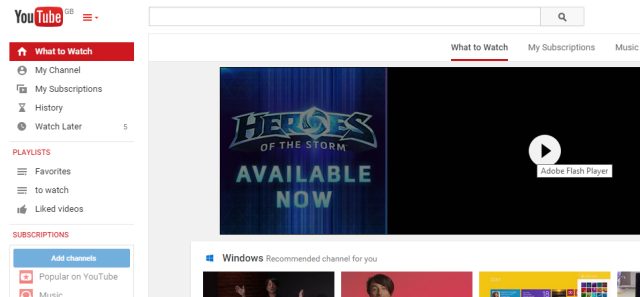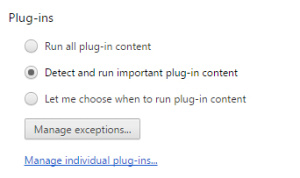
If there's one thing more universally reviled that interstitial ads—you know, those full-page ads that force you to wait for a few interminable seconds before you can get to the content—it's auto-playing Flash ads, especially if they contain audio. Good news: The next version of Chrome will automatically block Flash content that isn't "central to the webpage."
Google has been working with Adobe for years to get Flash and Chrome to play nicely together, but clearly Google has decided that Flash usage on the Web needs to be curtailed and controlled just a little bit more.
Writing on the official Google Chrome Blog, Google's Tommi Li explains that this new feature is all about battery life: Flash animations still consume a large amount of CPU time, which in turn slurps down some of your laptop's vital lithium juice. By "intelligently" pausing any Flash elements that aren't central to the surfing experience—which is essentially a euphemism for "ads"—mobile users may experience a non-negligible boost in battery life.

The "important plug-in content" change was rolled out to the beta channel of Google Chrome today, and will percolate down to the stable channel of Chrome "soon"—probably in about six weeks.
In our brief testing, the "important plug-in content" feature seemed to do a good job of blocking Flash ads, including a Flash ad at the top of the YouTube homepage. Rather than blocking Flash elements entirely, the feature pauses the ads before they begin; you can then hit a "play" button if you want to see the ad (or if Chrome accidentally pauses the wrong Flash elements). It's not clear if the new feature blocks other Flash-based content, such as cookies.
Perhaps most importantly, this feature will be turned on by default. When it hits the stable channel, hundreds of millions of Chrome users will have their Flash ads greyed out. If the advertising industry has been holding out on switching to HTML5, this will probably be the straw that finally breaks their resolve.
reader comments
153